15 Things Only A Service Dog Trainer Truly Understands
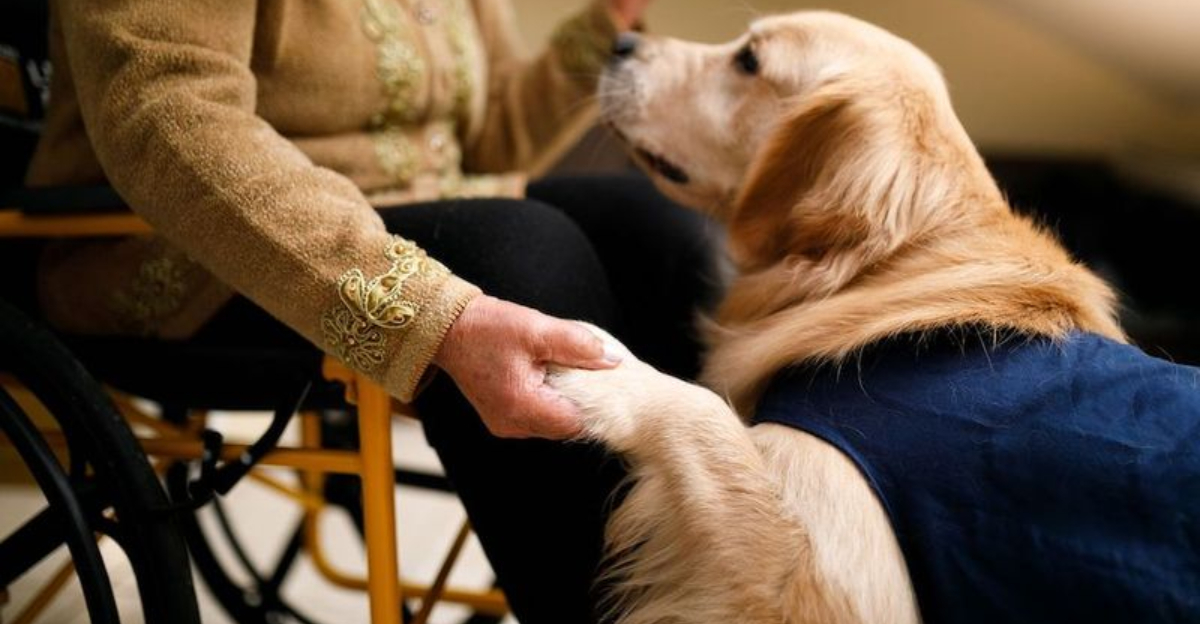
Service dogs are more than man’s best friend.
They’re life-savers with wagging tails, and every service dog trainer knows that their work is as rewarding as it is challenging.
1. Handling Public Interactions
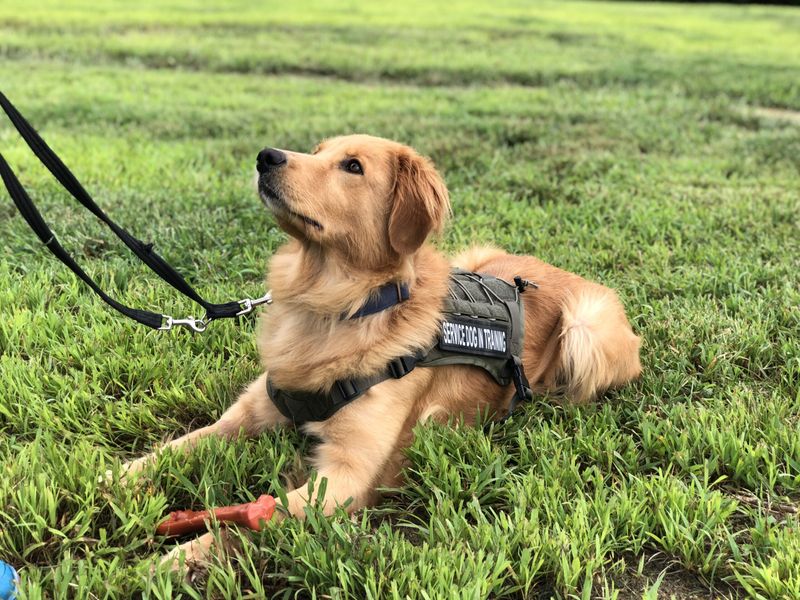
Public interactions with service dogs are a common occurrence. Trainers equip these dogs to handle diverse environments and unexpected distractions with grace.
These trainers teach dogs to navigate crowded spaces, ensuring they remain focused on their tasks.
This is often overwhelming for many dogs, but skilled trainers help them adapt, ensuring they are prepared for public life.
2. They’re Not Pets – They’re Working Animals
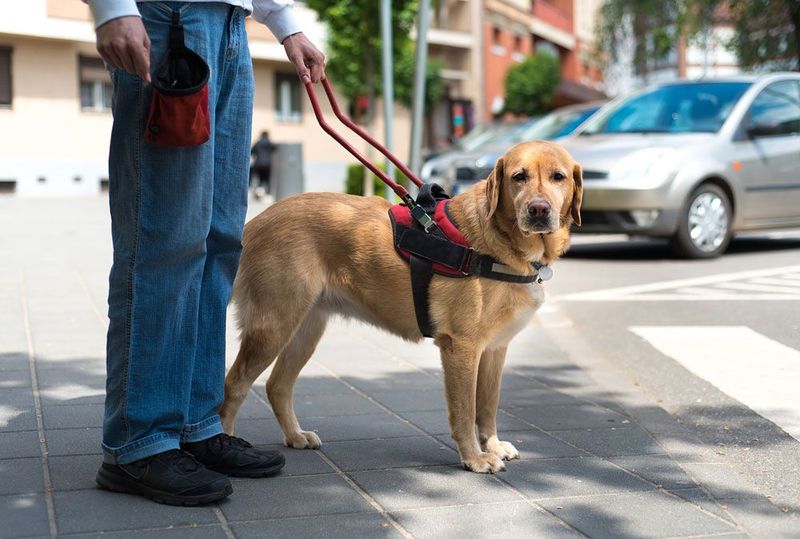
Ever seen a furry superhero? That’s a service dog for you. They’re not your average pet lounging on the couch.
They’re on a mission, even in bustling streets, their focus unwavering.
Each wag of the tail is part of their work routine, a sign of their dedication.
While they might sneak in some cuddles when off-duty, trainers understand the laser-like concentration required from these loyal companions.
3. Not Every Dog Can Be A Service Dog

Imagine a room full of puppies, each with its own personality. Not all can become service dogs.
Only a few have that perfect blend for the job. It’s not a failure for the others; it’s simply a calling only some can answer. Trainers celebrate each dog’s unique path, knowing not all roads lead to service.
4. Training Takes Years, Not Weeks
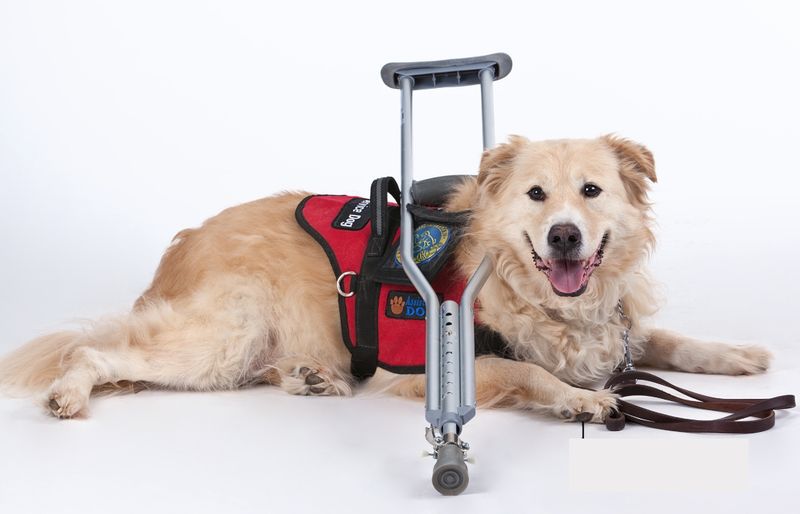
Training a service dog isn’t a sprint – it’s a marathon. Think of it as crafting a fine piece of art; it takes time, patience, and meticulous attention.
Trainers invest years, not weeks, into molding these dogs into reliable assistants. Every command mastered is a small victory on a long journey.
The bond they form over time is unmatched, a testament to dedication and perseverance. Each tail wag strengthens the trust between trainer and dog, a relationship built over countless hours.
5. Distractions Can Be Dangerous
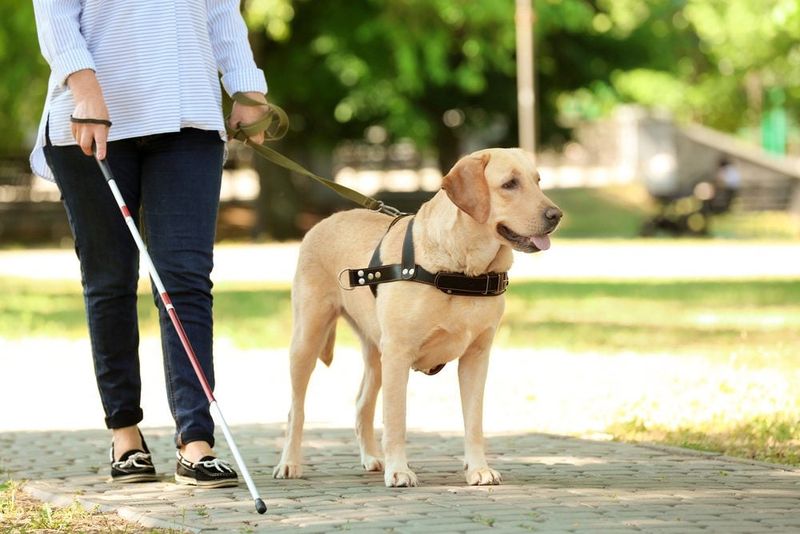
Picture a dog, alert and focused, and then someone calls its name or offers a treat. Distractions can be hazardous. Trainers know the stakes; it’s not just about obedience but safety.
A single moment of diversion could disrupt a critical task. That’s why they teach dogs to ignore external stimuli, even when it’s tempting.
Every service dog trainer understands the importance of concentration and the dangers of seemingly innocent distractions.
6. They’re Trained For Specific Needs
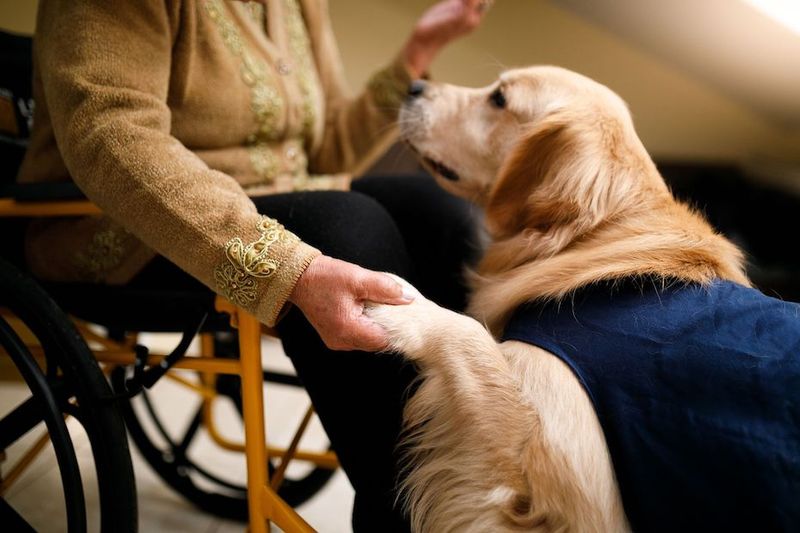
Service dogs are like bespoke suits—tailor-made for specific needs. Whether it’s guiding someone visually impaired or alerting to a medical condition, each dog is trained for its unique role.
Handlers and trainers cherish the precise skills these dogs bring to their lives, understanding the personalized nature of their training.
7. Tasks Go Far Beyond Basic Obedience
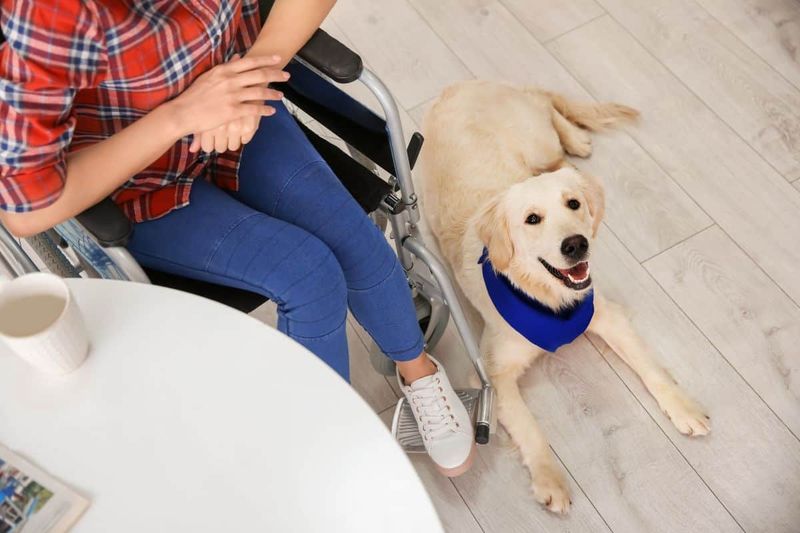
Sit, stay, and fetch are just the tip of the iceberg. Service dogs are trained for tasks that can be life-saving.
From fetching medication to pulling a wheelchair, their skills are vast and varied. Trainers help dogs master these advanced commands, often turning life into a series of small miracles.
Every meticulously trained task is a testament to the trainer’s expertise. They know the profound difference these abilities make in someone’s daily life.
8. They Can Sense Things We Can’t

Ever heard of a dog predicting a storm? Service dogs take it a step further, sensing changes in blood sugar or stress before their handlers feel a thing.
They nurture these natural instincts, turning them into reliable alerts.
These sensory gifts provide peace of mind to handlers, knowing their dog is always one step ahead. It’s a talent that trainers appreciate and cultivate with care.
9. Emotional Support Animals Are Not The Same
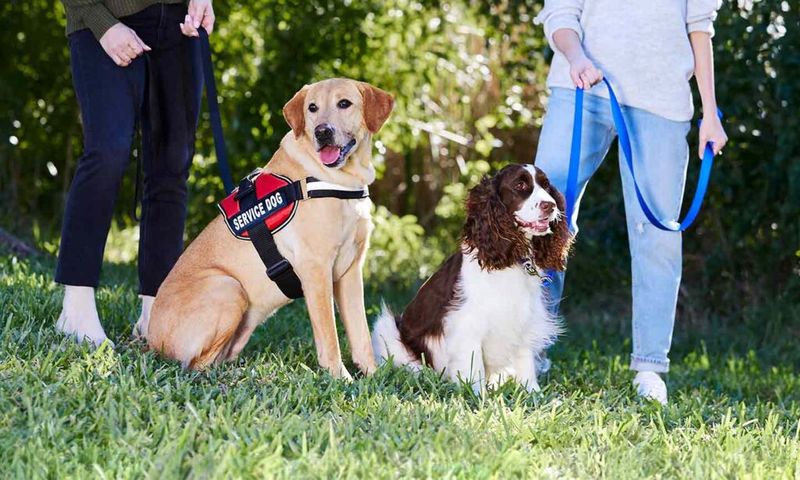
Service dogs and emotional support animals are often confused, but trainers know the distinction. Service dogs have legal rights and perform trained tasks—emotional support animals don’t.
It’s akin to comparing a professional athlete to a casual jogger. Both are important, but in different ways.
10. They’re Working Even When They’re Lying Down
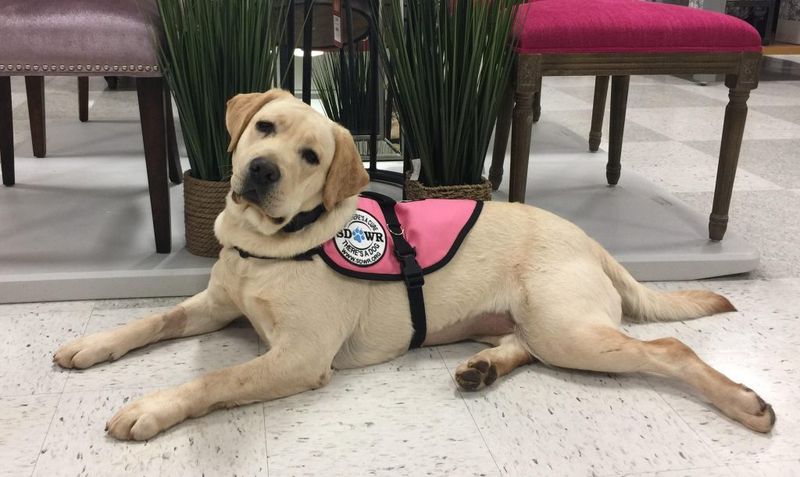
A dog lying under a table might seem off duty, but service dogs are always on alert. Trainers know that even during downtime, these dogs are working.
It’s a quiet vigilance, monitoring their handler’s needs, ready to spring into action at a moment’s notice.
This constant state of readiness is something trainers instill, ensuring that their canine companions are prepared for anything, even when it looks like they’re resting.
11. Retired Service Dogs Deserve A Peaceful Life

After years of service, even the hardest-working dogs deserve a break. Trainers ensure that retired service dogs find loving homes where they can relax.
It’s a bittersweet transition for trainers, who have shared years of hard work and triumphs with these loyal companions.
Seeing them enjoy a peaceful retirement is a rewarding part of the journey.
12. They’re Not Robots – They Have Feelings Too
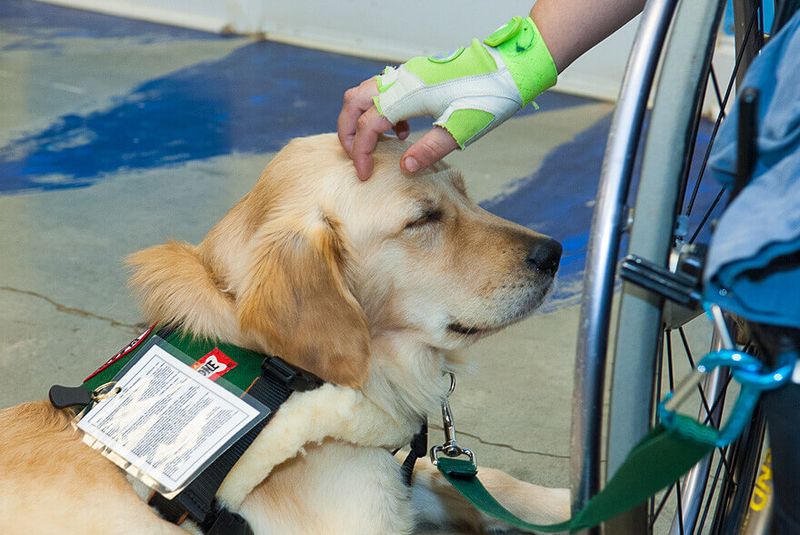
Even the most disciplined dog can have an off day. Trainers know that service dogs are not robots.
They have feelings and can experience stress or fatigue. Patience and understanding are key to maintaining their well-being.
Trainers nurture these emotional bonds, knowing that compassion is as essential as any command. They treasure the love and loyalty that form the heart of their relationship.
13. It’s Not About Tricks – It’s About Trust
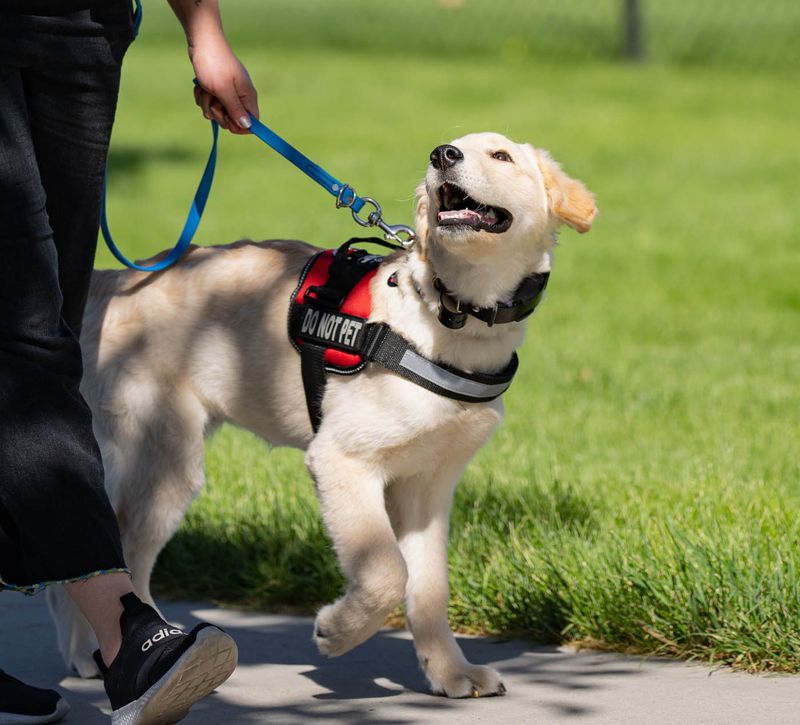
Trust is the cornerstone of any great partnership, and service dogs are no exception. Trainers know it’s not about flashy tricks but building trust.
This relationship is more than commands; it’s about understanding and reliability.
Trust ensures safety and cooperation, making the bond between handler and dog extraordinary. Trainers take pride in fostering this connection, knowing it’s the foundation of every successful team.
14. Fake Service Dogs Are A Big Problem
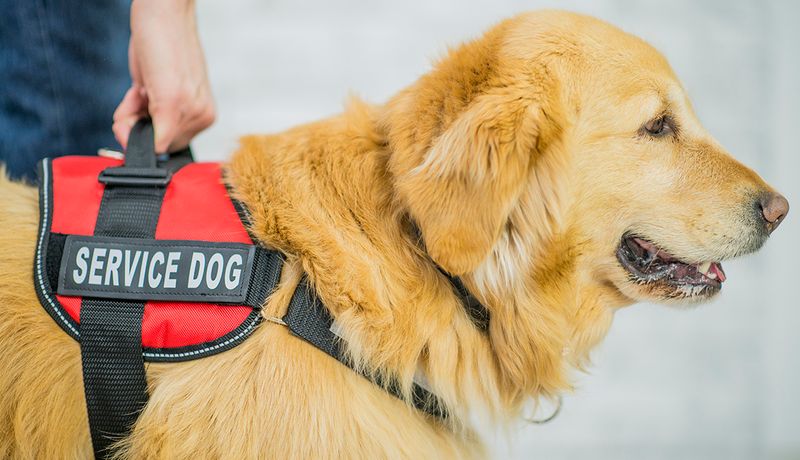
It’s frustrating for trainers when pets are misrepresented as service dogs. This deception undermines the legitimacy of real working dogs.
Trainers are adamant about educating the public on the differences and risks involved.
Fake service dogs can put true service dog teams in jeopardy, making education and awareness crucial in maintaining integrity in public spaces.
15. Every Time You Stare, It Adds Stress
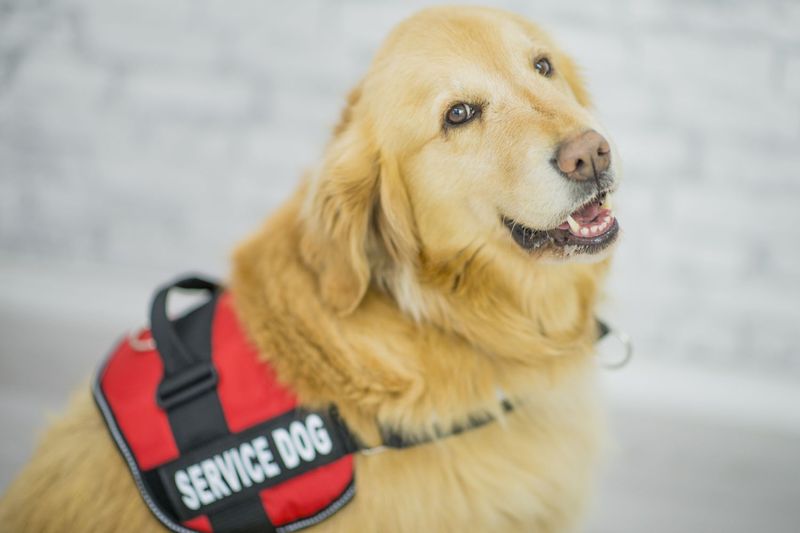
Imagine being watched constantly. For handlers, a lingering stare can add stress and a sense of judgment.
Trainers teach dogs to focus amidst scrutiny, but they also emphasize public respect.
Understanding and respecting the space of service dog teams helps reduce anxiety and allows them to work effectively. It’s a reminder that respect and kindness go a long way.






